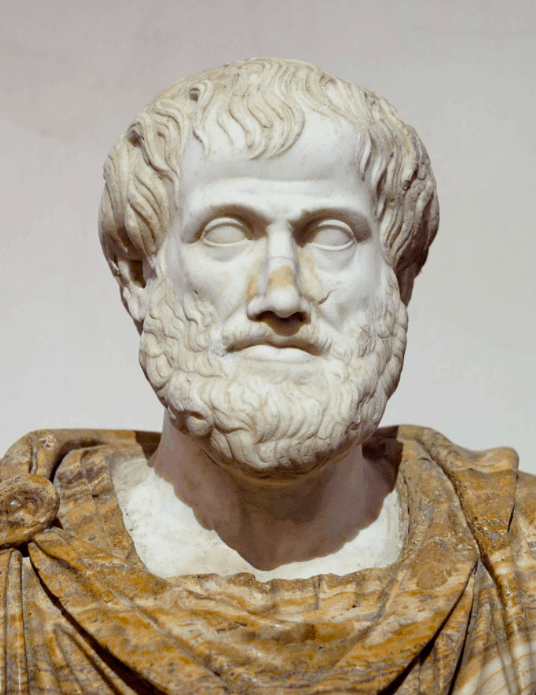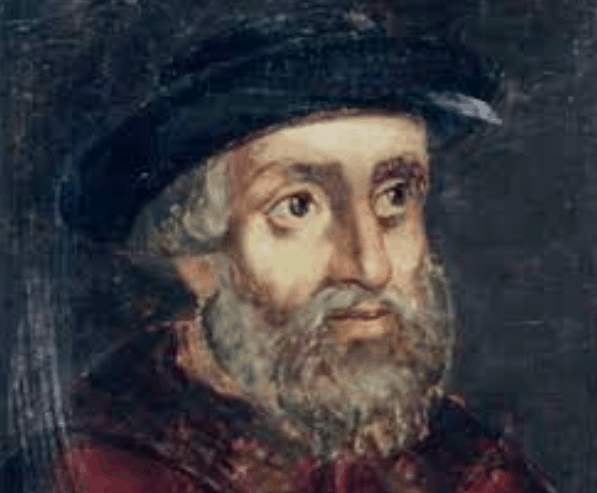On this day, 26 June 1487, John Argyopoulos passed away.
John Argyopoulos (Ἰωάννης Ἀργυρόπουλος) was a Greek academic, lecturer, philosopher and humanist, one of the émigré Greek scholars who pioneered the revival of classical Greek learning in Italy at the dawn of the Renaissance.
Argyopoulos translated Greek philosophical and theological works into Latin, and produced rhetorical and theological works of his own in Latin; ensuring that their wisdom and teachings could be spread through Italy.
In doing so, he exerted a tremendous influence over Western thought, earning a reputation as one of the greatest humanists of the Renaissance era.
The principal works of Argyropoulos were translations of Aristotle, including; Categoriae, De Interpretatione, Analytica Posteriora, Physica, De Caelo, De Anima, Metaphysica, Ethica Nicomachea, Politica; and an Expositio Ethicorum Aristotelis. Several of his writings still exist in manuscript.
Argyropoulos' legacy is also built upon his outstanding work in Italy as a teacher as part of his commitment to transport Greek philosophy to Western Europe.
The Life of John Argyropoulos
Born circa 1415 in Constantinople, Argyropoulos studied theology and philosophy.
As a teacher in Constantinople, Argyropoulos had amongst his pupils the scholar and grammarian Constantine Lascaris.
Argyropoulos was an official in the service of one of the rulers of the Byzantine Morea. In 1439, he was a member of the Byzantine delegation to the Council of Florence, the ecumenical council of the Roman Catholic church (1438–45) in which the Latin and Greek Orthodox churches tried to reach an agreement on their doctrinal differences, ending in an agreed decree of reunion, however short-lived.
Around 1443-4, Agryopoulos received a Doctor of Theology degree from the University of Padua in Northern Italy before returning to Constantinople, the capital of the Byzantine Empire.
In 1453, Constantinople was captured by the Ottoman Empire in the culmination of a ruthless and savage invasion and plundering by the soldiers. According to historical reports, thousands of Christians around the city were slaughtered, whilst over 30,000 civilians were enslaved and deported by force. Incredibly, Argyropoulos survived this ordeal.
During the Fall of Constantinople, Argyropoulos managed to escape to the Peloponnese. In 1456, he took refuge in Italy where he worked as a teacher in the revival of Greek philosophy, firstly in Padua and then as head of the Greek department at Florence’s first University, the Studium Generale from 1456 to 1470.
Before long, he became one of Italy’s most famous academics, attracting humanists from all over the country to study beside him.
Among his most notable students were Angelo Poliziano, John Filelfo, the son of Franciscus Filelfo, Donato Acciaiuoli, Leonardo DaVinci, Johannes Reuchlin and Alamanno Rinuccini.
Other prominent students included Pietro de' Medici, Lorenzo de' Medici, Angelo Poliziano and Johann Reuchlin.

John Argyropoulos and Aristotle
For Argyropoulos, there were three most important philosophers: Socrates, Plato and Aristotle - however, Aristotle was his favourite by far.
Indeed, Aristotle was one of the greatest philosophers who ever lived and the first genuine scientist in history. He made pioneering contributions to all fields of philosophy and science and invented the discipline of formal logic.
Appointed as tutor to Alexander the Great when Alexander was just 13 years old, one of the main focuses of Aristotle's philosophy was his systematic concept of logic. Aristotle's objective was to develop a universal process of reasoning that would enable humanity to learn every conceivable thing about reality.
Together with Socrates and Plato, Aristotle laid much of the groundwork for western philosophy, and indeed Western civilisation.
"Aristotle not only invented formal logic as the first systematic investigator for biology,” says Henry Mendell, Professor of Philosophy, California State University, “his most important work was in the realm of metaphysics, namely the study of the structure of reality."
John Argyropoulos worked tirelessly as an apostle of the Greek language and philosophy throughout his life, and due to his translations of the important works of Aristotle to Latin, the West became acquainted with Aristotle once again.

Agyropoulos’ teachings in Florence have been recognised as a turning point in Florentine humanism because he diverted the interest from the emphasis on eloquence to metaphysics.
Argyropoulos taught Platonic and Aristotelian philosophy in an innovative way, leaving his house always open to his students and humanists who wished to philosophise and discuss with him.
John Argyropoulos, a champion of the Greek spirit and culture
John Argyropoulos became the most famous representative of Aristotelian philosophy in Italy and hugely contributed to the restoration of the classical studies and connecting the humanists with the Greek spirit.
His translations, teaching and involvement in scholarly debates helped to transfer a valuable aspect of his own Greek culture to Italy and to the Western world.
At the outbreak of the plague in 1471, Argyropoulos moved to Rome, where he continued his work as a teacher of Greek for the rest of his life.
John Argyropoulos died at the age of 72, in complete poverty, on 26 June 1487. The cause of his death was thought, at the time, to be over consumption of watermelon.
By the end of his life, John Argyropoulos had gained thousands of followers both within and from outside of Italy.
Antikythera Mechanism: Computer built in ancient Greece leaves scientists stunned


